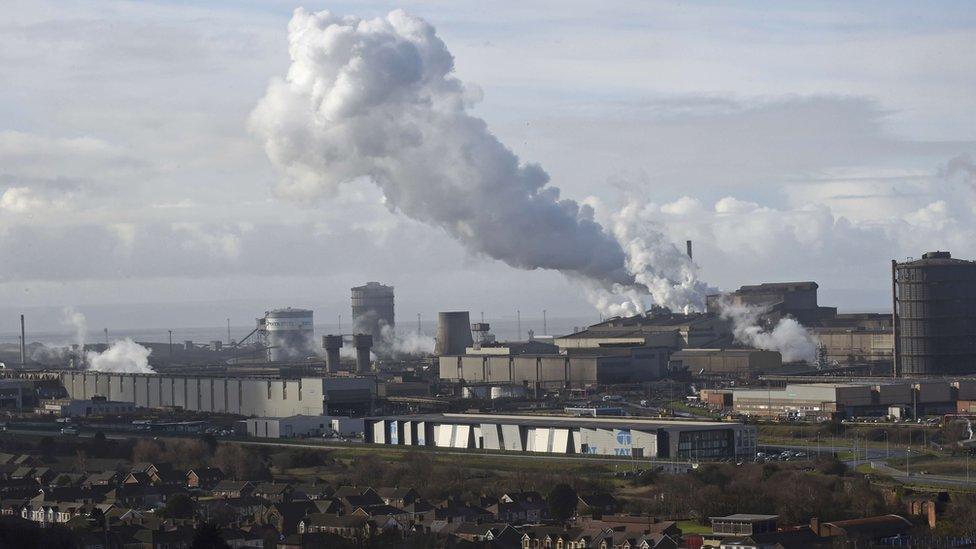Steel crisis: State ready to help on Port Talbot deal - Sajid Javid
- Published
Sajid Javid: "I will do everything I can to keep this plant open"
The government says it is ready to offer support to secure a buyer to save Port Talbot steelworks, where thousands of jobs are at risk.
Business Secretary Sajid Javid said he did not think nationalisation was the solution but did not rule it out.
He said any buyer would want to look at "plant, pensions and power supply" - which ministers were "working on".
Tycoon Sanjeev Gupta is understood to have been in touch with the government over a potential purchase.
A source close to Mr Gupta said the discussions had not been substantive yet but he would be seeking further talks when he arrives back in the UK early next week.
BBC political correspondent Carole Walker said Mr Gupta wanted to discuss possible government help to replace Port Talbot's traditional blast furnaces with modern electric arc furnaces and energy costs.
Extra relief from carbon tax was another important issue, according to the source.

UK steel crisis
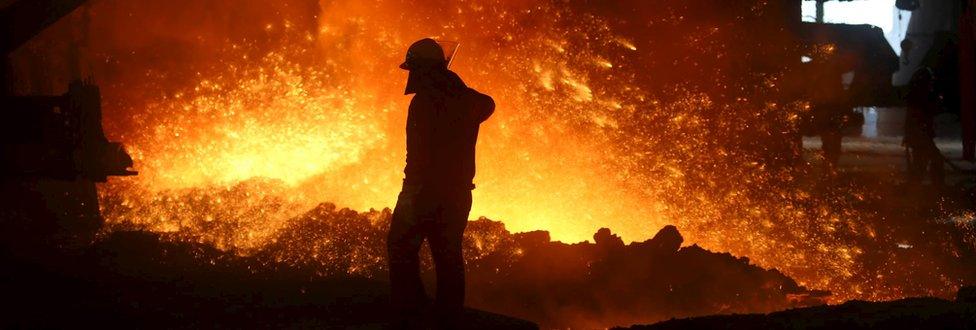

Labour has said nationalisation should be considered until a buyer is found for Tata Steel's loss-making UK businesses.
Tata Steel said it was "committed to running a meaningful process to explore strategic alternatives" for its UK business, which directly employs 15,000 workers and supports thousands of others across plants in Port Talbot, Rotherham, Corby and Shotton.
Australia trip
Mr Javid - who has faced criticism for being on a business trip to Australia at the time of the announcement - said the government had known "a few weeks ago" that Tata was reviewing its UK operations, including the possible closure of the Port Talbot plant.
But he said: "The strength of the announcement and how far they went - particularly what they said about timing - was much further than we expected."
Mr McDonnell said he was "shocked" that Mr Javid knew about a "critical" Tata meeting held in Mumbai on Tuesday but was in Australia.
"I think we need someone else doing the job. We need someone who's more dynamic," he told the Radio 4's World This Weekend programme.
John McDonnell: "If we have to nationalise in the short term, fine, but that would be on the basis of securing the future of the industry"
Speaking on the BBC's Andrew Marr show, the business secretary said the government would do "everything we can" to support the UK steel industry, saying it was "vital" for economic and national security.
He said nationalisation was "rarely the answer" - but it "wouldn't be prudent to rule anything out".
Mr Javid said the government's plan to save the plant - and industry - was to find a commercial buyer for all of Tata's UK businesses.
"We're going to also have to offer support to eventually clinch that buyer and to give this steel plant a long-term viable future," he said.
'Three Ps'
Mr Javid said any buyer would want to refer to "the 'three Ps' - plant, pensions and... power supply".
He added: "What I hope is that you will have the offer document from Tata, overlay on top of that the help the British government can provide, then you have the makings of a successful deal."
He suggested "more can be done" on the cost of electricity at the plant and on pension schemes to attract potential investors - but he would not be drawn on the details.
He said did not guarantee the plant's future, but said: "I will do everything I can to keep this plant open."

Analysis
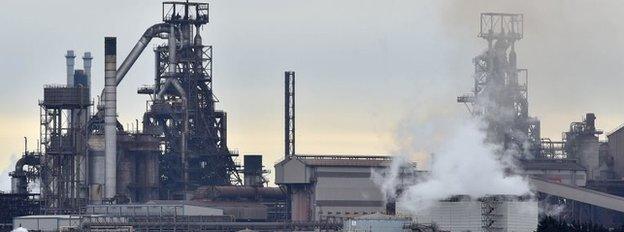
By Joe Lynam, BBC business correspondent
It's always helpful when we get clearly memorable acronyms to understand very complex issues.
In the case of the crisis facing Port Talbot steel workers, Business Secretary Sajid Javid gave us the '3 Ps': plant, pensions and power.
The plant is what type of steel Port Talbot will be making in future. The mass produced or commodity type can be easily undercut by much cheaper Chinese steel - so it needs to focus on more specialist types which can compete on world markets.
Tata Steel has a pensions deficit of £485m. But it is 97% funded which means few buyers will walk away from the table over relatively small sums.
The final 'P' is the cost of electricity. Making steel is probably the most energy hungry activity you can do. The government has already started refunding companies the additional electricity charges they had to pay as major CO2-emitting industries.
Subsidising power costs would breach EU state aid rules so finding a clever solution here could be the key to persuading any future owners.

Tata Steel said there was "no fixed timeline" for the sale process but it needed to be "implemented urgently to avoid a long period of uncertainty for employees and customers".
"Tata Steel Europe is in the process of finalising the appointment of advisers and will soon launch a process globally of seeking an investor for the UK operations," it added.
'Shovel-ready projects'
Shadow chancellor John McDonnell suggested the government could maintain a stake in the plant after a sale.
"You might want to say there is a public stake there for the long term future to give us that security. It depends on the levels of investment," he said.
He also called on the government to bring forward infrastructure projects and speed up "shovel-ready projects", to give the steel industry a boost and encourage buyers.
He warned the cost of closing the plant could be up to "£1.5bn a year" in welfare payments to support workers who had lost their jobs and the impact on the local community.
'Steel dumping'
It comes as the government said all public sector bodies would be required to think about the impact of using foreign steel for construction projects, in a bid to encourage buying British steel.
Ministers have faced criticism for failing to take more action to prevent the "dumping" of cheap Chinese steel - selling it cheaply at a loss - seen as one of the key reasons for the problems in the UK steel industry.
The unions said the move was "a small step in the right direction" but the measure should have been in place already, while Labour said ministers needed to go further to ensure the industry's survival.
The Welsh government said a task force was already looking at supporting the steel industry through public sector contracts in devolved areas.
David Cameron and Welsh First Minister Carwyn Jones will meet on Tuesday to discuss the situation.
Elsewhere, the government has played down the impact of new Chinese import tariffs of up to 46.3%.
On Marr, Mr Javid said the UK had been "the leader" in pushing for action on tariffs but he said protectionism "is in no-one's interests".
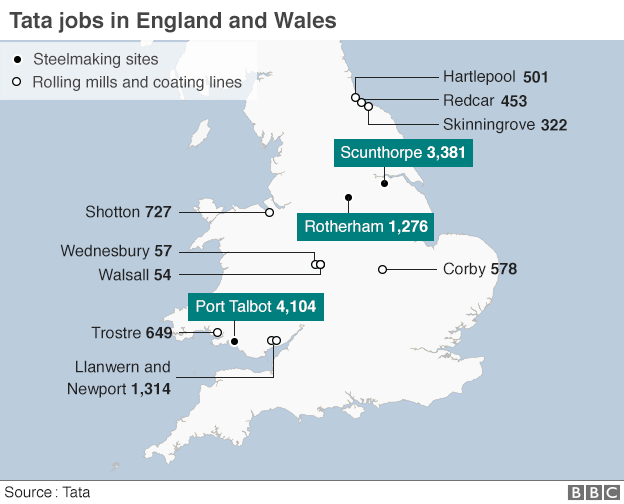
- Published2 April 2016
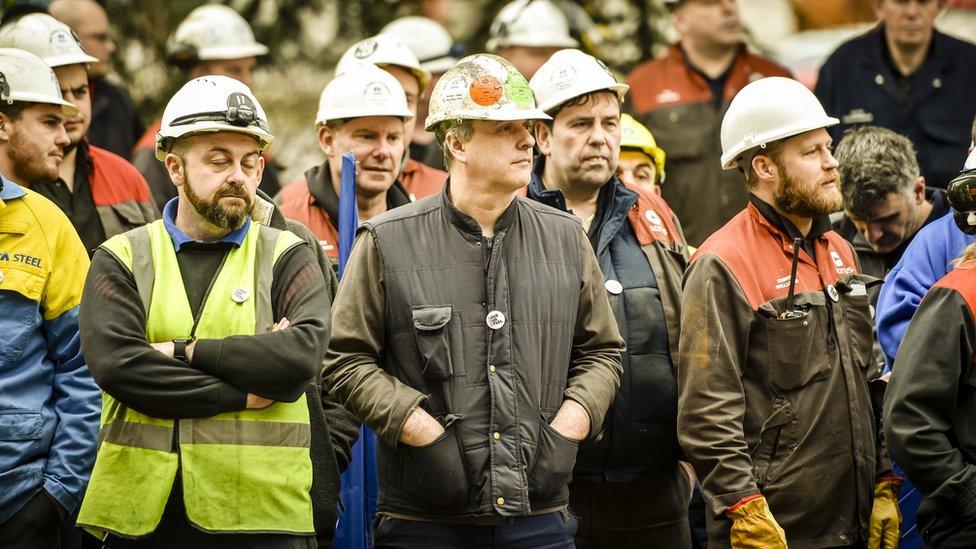
- Published2 April 2016
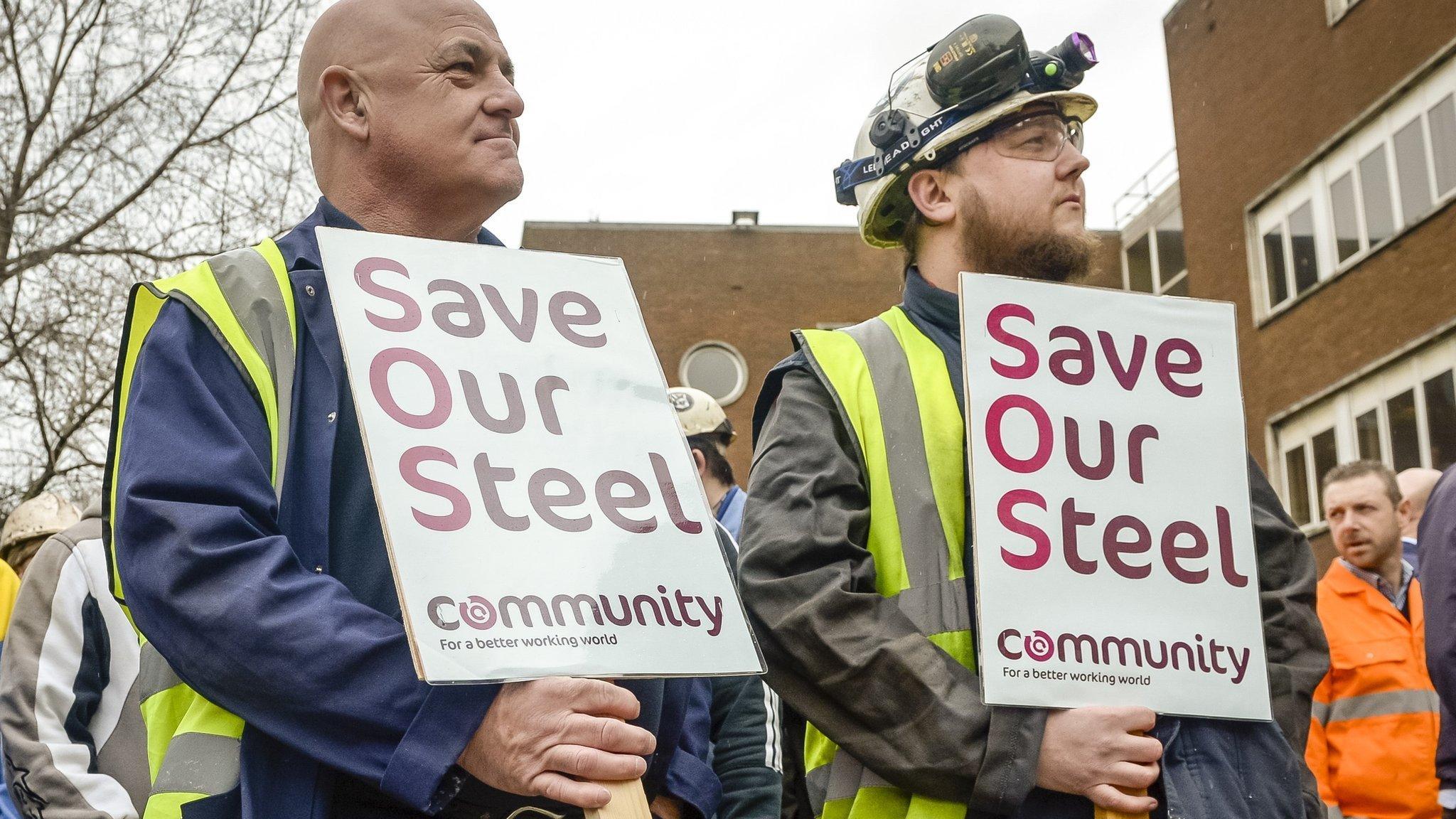
- Published31 March 2016
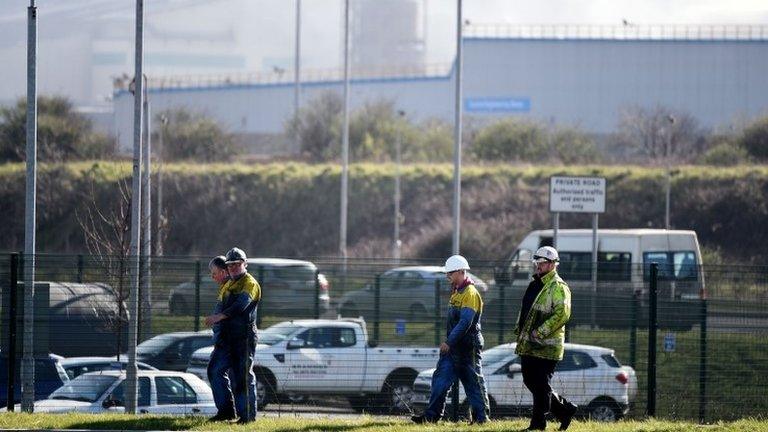
- Published31 March 2016
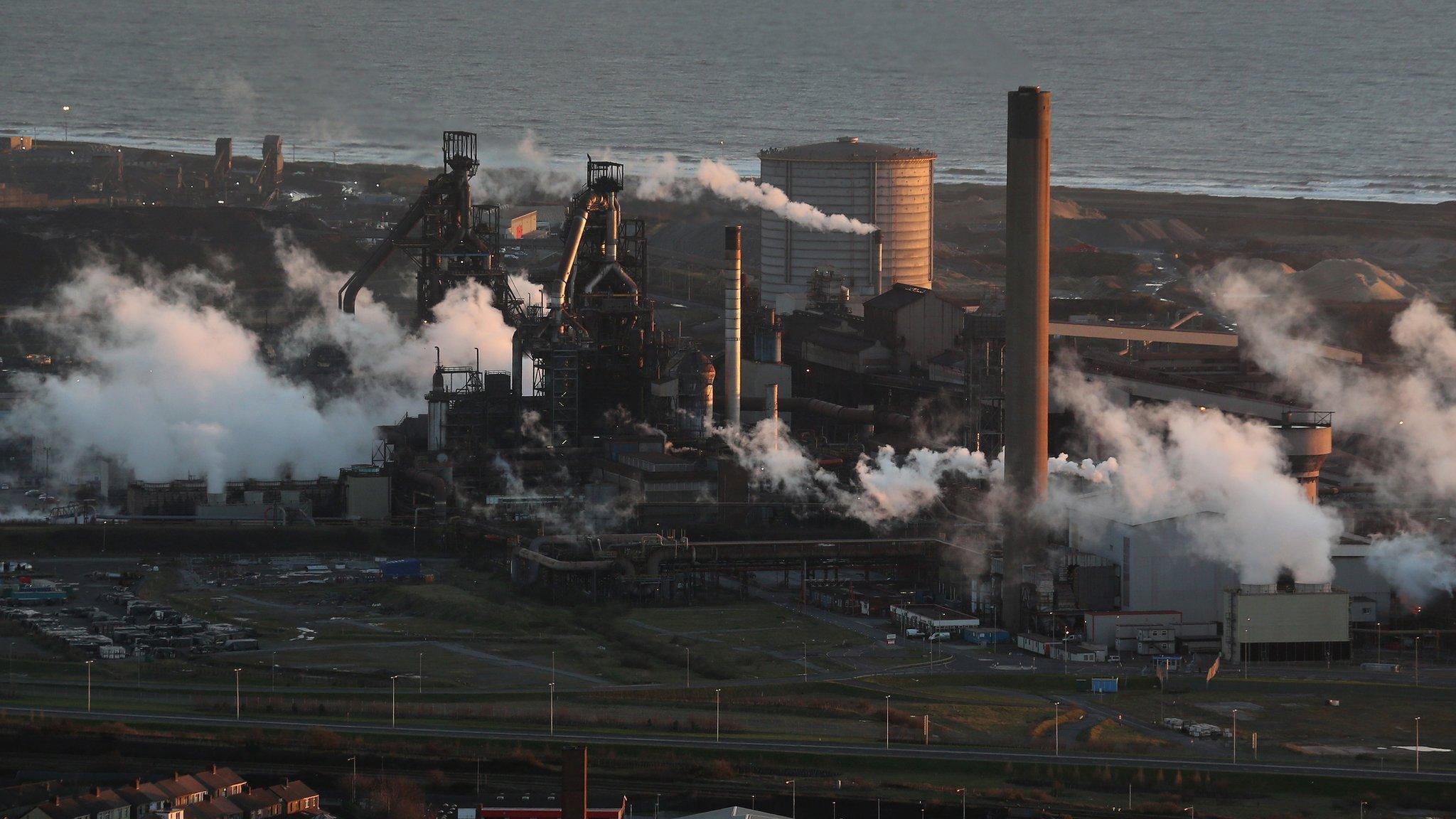
- Published30 March 2016
